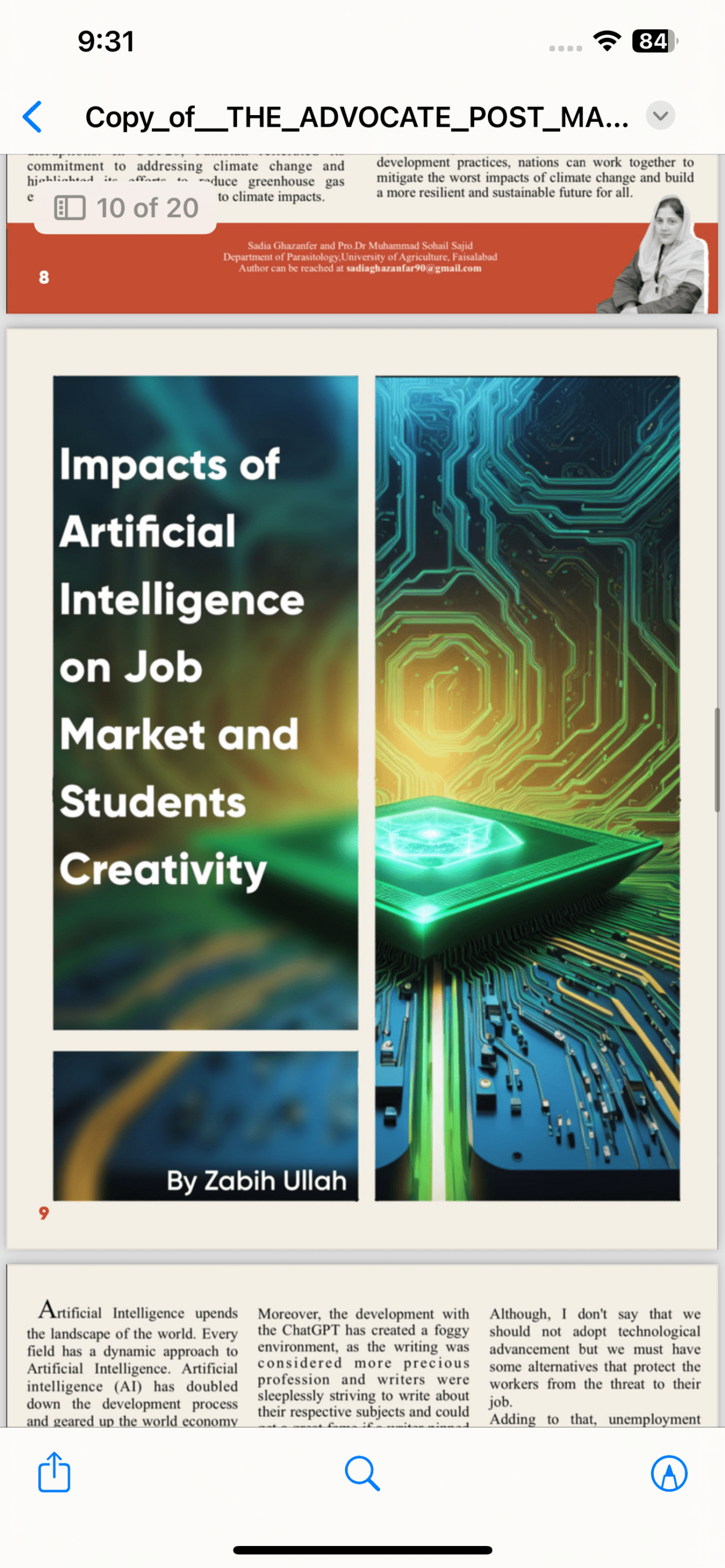Zabih Ullah Khattak (Pakistan)
Artificial Intelligence upends the landscape of the world. Every field has a dynamic approach to Artificial Intelligence. Artificial intelligence (AI) has doubled down the development process and geared up the world economy by maximizing profit. Along with that several concerns are echoed regarding Al modules that possess existential threat to the jobs market of the workers. An insight analysis should be drawn to this issue of whether artificial intelligence is detrimental and or it can boost job opportunities learning capabilities.
In 2016, I had been working in a pharmaceutical company where 30 workers were giving production of five thousands syrup bottles. Meanwhile, the company owners brought a machine that could fill twenty bottles in twenty seconds which was double the speed of three workers, to oversee the machine function; only two technical workers were required so with the advancement of machines, the unemployment of twenty workers was happened. Furthermore, the company was not in the condition to bring more machines to overrun the function, otherwise the entire company would require only a few expert workers.
It is an instance of a small company, similar cases are soaring across the world and people are slashing from their jobs and the gap is quickly filling by machine.
Moreover, the development with the ChatGPT has created a foggy environment, as the writing was considered more precious profession and writers were sleeplessly striving to write about their respective subjects and could get a great fame if a writer pinned down glorified words with a sophisticated way but unfortunately the glory of writing is no more with us. In seconds one can find hundreds of words that leave out the enthusiasm for writing and people are less likely to pay attention to writers. Along with that, content writers have been fired from jobs because Al generative tools have a better quality to write contents but on the other side it also has some loopholes like no creativity, machine base content, flaws in presentation etc.
Moreover, in an office two to three computer operators were required to continue the business of office and type the data, typing masters were required to input words in computer and print them out, while hitting back by Al, now, one can only capture a picture from handwritten script Al can convert it into word form in a few seconds.
These are a few examples that show that Al has put a threat over the job market. Beside these, every department has direct or indirect influences of Al that ultimately tarnished a low income daily wager.
Attention must be paid especially by the third world countries where the menaces of Al will be more disastrous than in the developed countries.
Although, I don’t say that we should not adopt technological advancement but we must have some alternatives that protect the workers from the threat to their job.
Adding to that, unemployment comes fourth and the situation seems unfavorable for those who are unprepared for such bustling advancement that could aggravate the already volatile job market.
Alongside unemployment, several other loopholes are lurching that can send down the creativity to its nadir. Furthermore, the technological advancement especially the advent of Al Module algorithm has stocked minds and one can feel the repercussions of it in our educational institutions which are losing credibility. Moreover, the students in schools, colleges, and universities are less likely favor the cognitive knowledge and unturned to the books.
Furthermore, book reading is rarely found and became forgotten past and students are copying assignment, notes and papers material from Al generated stores. A closer look to these intrinsic issues, the policy makers should formulate efficient policies that could confluence the entire saga and address every corner of this. Although, the technological advancement has several perilous implications but the stream can be turned into a useful segment if we structure cognitive policies.
Zabih Ullah is from KPK Pakistan. He is a visiting lecturer of Political Science at Post graduate College Karak and writes about current affairs.





